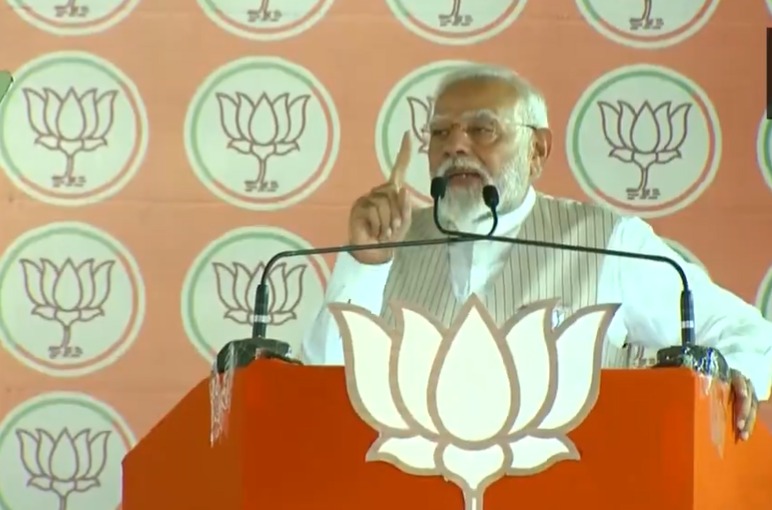Prime Minister Narendra Modi, in a stirring address at a public rally in Telangana, brought to light what he termed as the “RR tax” imposed by the Telangana Congress, drawing parallels to the blockbuster Telugu film “RRR” and sparking renewed discourse on taxation policies in the state.
Commending the Telugu film industry for the unprecedented success of “RRR,” which has elevated India’s cinematic prowess on the global stage, PM Modi voiced apprehension over the purported burden inflicted by the “RR tax” on the populace of Telangana.
“RRR has brought laurels to India worldwide, but the shadow of the RR tax tarnishes our nation,” Modi asserted, addressing the assembled crowd. He alleged that the Telangana Congress has mandated industrialists and contractors in the state to surreptitiously contribute to this tax, dubbing it as payments “from the backdoor.”
Expanding on his accusations, the Prime Minister contended that a substantial portion of the funds amassed from the RR tax is clandestinely routed to Delhi as illicit black money, hinting at systemic corruption within the Telangana Congress.
The rally, integral to PM Modi’s campaign tour in Telangana, reignited discussions on taxation policies and their socioeconomic ramifications. As citizens and businesses grapple with the implications of the alleged RR tax, political tensions escalate, amplifying calls for transparency and accountability within the Telangana Congress.
Despite PM Modi’s damning allegations, the Telangana Congress is yet to issue a formal response, leaving the electorate eagerly awaiting clarification on the matter. With the political landscape in Telangana undergoing seismic shifts, the RR tax controversy assumes center stage, underscoring the imperative for principled governance and fiscal integrity in the state.



